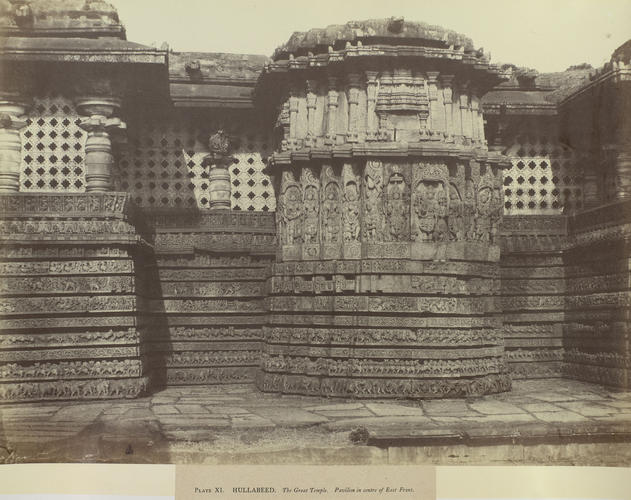-
1 of 253523 objects
William Henry Pigou (1818-1858)
Pavilion in the centre of the East Front of the Temple at Hullabeed 1866
Albumen print | 28 x 38 cm (image) | RCIN 2603901

William Henry Pigou (1818-1858)
Pavilion in the centre of the East Front of the Temple at Hullabeed 1866
-
Photograph of the east front of the Great Temple at Hullabeed. The focal point of the image is the semi-circular, highly-carved pavilion that extends from the centre of the temple façade. Its base is elaborately decorated with a series of horizontal bands of stone carving which, starting from the lowest level, depict a procession of elephants with figures mounted on them, a frieze of Shardalas (tigers, which are the emblem of the Bellala dynasty) and a frieze of horsemen. Above the frieze are a series of perforated stone slabs interspersed with decorated stone pillars.
The temple at Hullabeed was built during the thirteenth century, but was never completed. Its plan reveals that it is a double temple, although dedicated to a single god Siva. It has two Vimanas, or sanctuaries, on the west front and two Mandapas, or porches, on the east side, each containing a colossal statue of the bull Nundi, the emblem of divine justice. The Hullabeed temple is considered to exhibit some of the finest examples of elaborate Indian stone carving. The text comments on the 'flatness of the skyline' of the temple, a result of its unfinished spires. -
Creator(s)
(photographer) -
Medium and techniques
Albumen print
Measurements
28 x 38 cm (image)
Category
Object type(s)